Leonard Bernstein’s comic operetta Candide boasts the dubious distinction of representing the most frequently revised and rewritten composition in the 20th Century. Initially, in 1956, Bernstein produced a musical version of Voltaire’s 1759 novelette Candide, adapted by the American playwright Lilian Hellman. It first sounded as a try-out on 29 October 1956 in Boston and opened on Broadway as a musical on 1 December 1956 at the Martin Beck Theatre.
Leonard Bernstein: Candide, “Overture”
Broadway
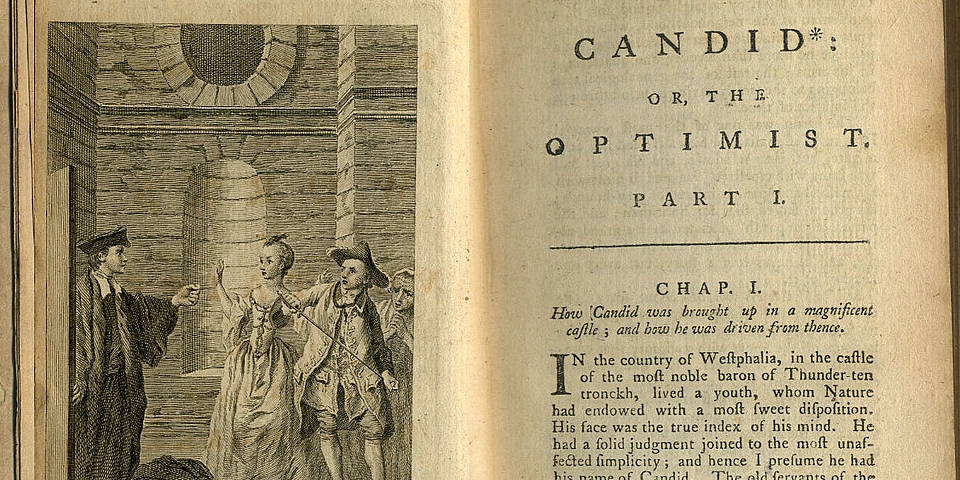
Voltaire’s 1759 novelette Candide
Audiences and critics alike almost immediately questioned the disparity between a depressing and gloomy libretto and the ironic, mostly irreverent character of the music. The New York Times writes, “When Voltaire is ironic and bland, Hellman is explicit and vigorous…Where he is diabolical, she is humanitarian. The mocking lyricism of Bernstein’s score, without being strictly 18th century, maintains its gay pastiche of past styles and forms.”
Running for only 2 months on Broadway, Candide closed after a mere 73 performances. In subsequent years, the show underwent a series of revivals, including the fashioning of a brand new libretto by Hugh Wheeler, which is more faithful to Voltaire’s original text. With the help of numerous lyricists, including Bernstein himself, the “Chelsea version” of Candide opened in 1973 and saw 740 performances on Broadway.
Leonard Bernstein: Candide, “Life is Happiness Indeed” (Leonardo Capalbo, tenor; Jane Archibald, soprano; Marcus Farnsworth, baritone; Carmen Artaza, mezzo-soprano; London Symphony Orchestra; Marin Alsop, cond.)
Final Version
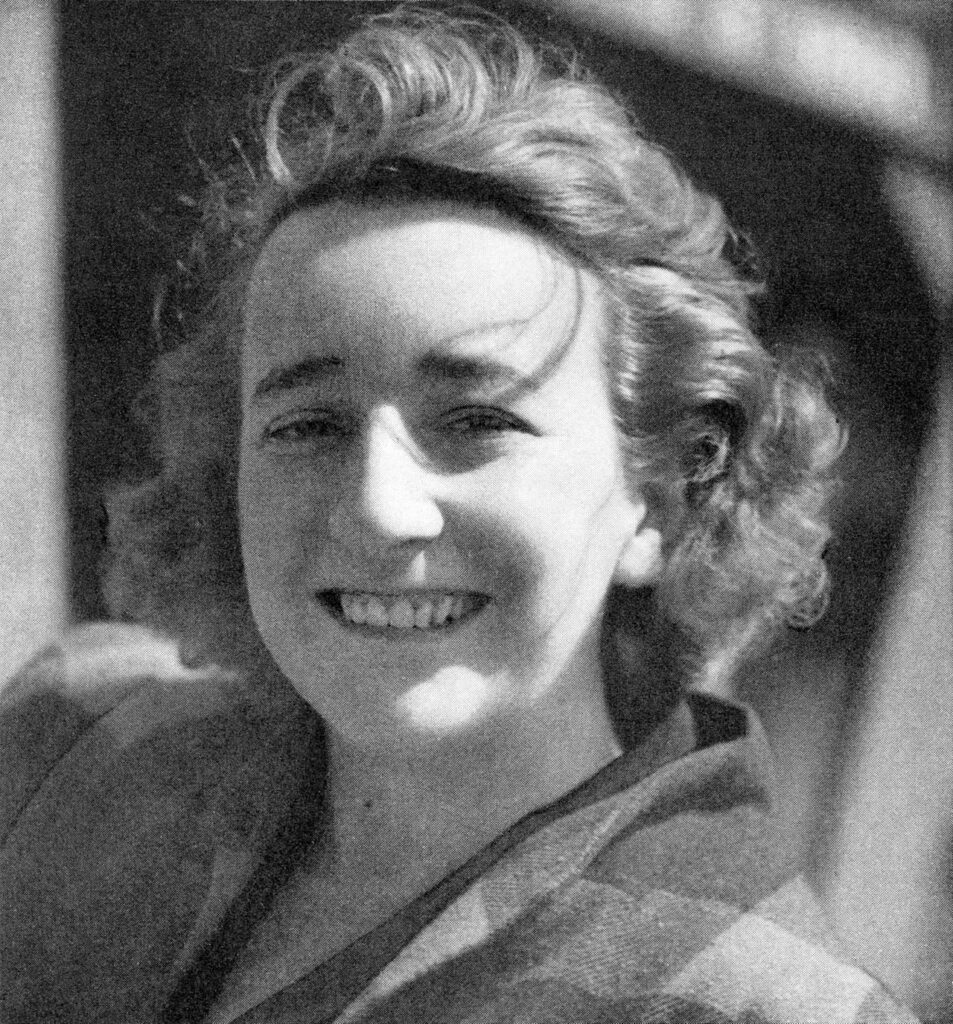
Lilian Hellman, 1939
The “Chelsea version” cut over half of the musical numbers and turned the production into a multi-scene show. “Actors performed on platforms in front, behind, and sometimes between audience members, and a 13-member orchestra played from four areas. The conductor wore period costume and gold braid.” The version wasn’t particularly suitable for opera companies, and a two-act opera version, which premiered in 1982, restored most of Bernstein’s music.
In 1988, Lilian Hellman—who had refused to allow any of her writings to appear in the revival versions—passed away, and Bernstein, together with John Mauceri, produced a version that expressed his final design. Finally, 33 years after its initial conception, this final version was staged on December 13, 1989, in London.
Leonard Bernstein: Candide, “I am easily assimilated”
Candide
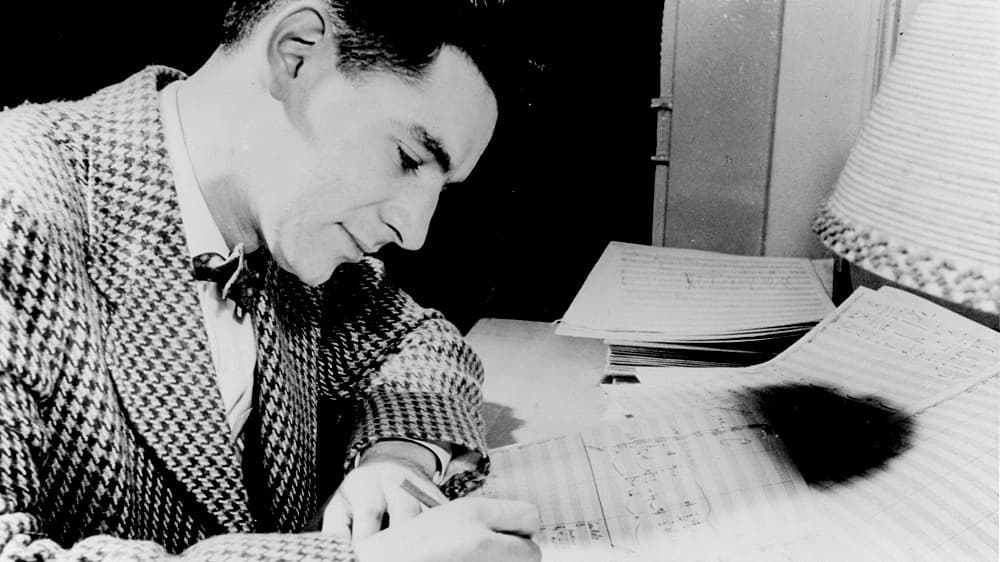
Leonard Bernstein
Published in 1759, Candide is the best-known satirical novel by Voltaire. It is an adventure story, essentially a novel and a satire rolled into one that comments, criticises, and ridicules many events, thinkers and philosophies of the time. In particular, it harshly denounces the ideas of metaphysical optimism as presented by the German philosopher Gottfried Leibniz.
Candide (tenor), a Westphalian youth, is in love with Cunégonde (soprano). Their tutor Dr Pangloss (baritone) teaches them that everything in this world is for the best, and part of God’s universal plan. To prove this theory, Candid is subjected to a series of disasters. He is expelled from Cunégonde’s home, forced into the army, and he finds Cunégonde raped and apparently dead. Pangloss is disfigured by syphilis and surviving a major earthquake, and they are captured by the Holy Inquisition, and Pangloss is hanged.
Leonard Bernstein: Candide, “The ballad of Eldorado”
The Plot
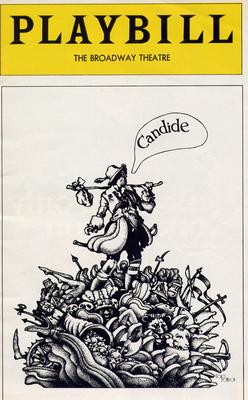
Playbill of Bernstein’s Candide
Candide is reunited with Cunégonde, and he kills her new lover. They flee together to South America in the company of an Old Lady (mezzo-soprano), and Cunégonde is sold into slavery. After countless adventures among the inhabitants of the lost world of El Dorado, Candide is shipwrecked but returns to Venice where he finds Cunégonde working as a prostitute in a gambling casino. Candide finally discounts Pangloss’ philosophy and realises that the world is neither good nor bad, but what we make of it.
This basic outline applies to all Bernstein versions of Candide, even though the details vary greatly. Specifically, the 1973 version provides a new selection of scenes, some from Voltaire and others newly invented. This production proved more acceptable to audiences, but as Jon Alan Conrad writes, “the score itself suffered severely, with five songs omitted and the rest rescored for a tiny ensemble; with some new songs added as well.”
Leonard Bernstein: Candide, “Universal Good” (London Symphony Chorus; London Symphony Orchestra; Marin Alsop, cond.)
The Music
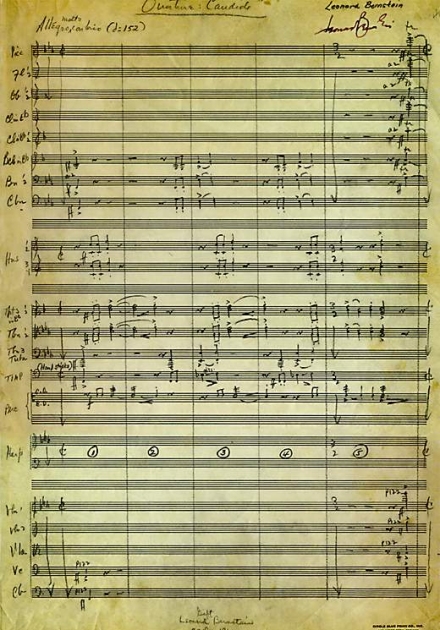
Leonard Bernstein’s Overture to Candide music score
The more familiar excerpts from the work remain common to all versions, and that includes the sparkling overture. It captures the exuberant satire and joyous irony by differentiating between European operetta and American musical comedy. The energetic brass fanfare sounds the melody from the song “The Best of All Possible Worlds,” and its European operetta style is quickly juxtaposed with the rhythmic vitality of the American musical theatre.
Constantly changing meters underscore the comic characters of the operetta, but this is no mere potpourri but a sonata form “concluding with Rossinian crescendo and a caricature of coloratura jewel songs.” The entire work is unified by a theme associated with Candide’s optimism and octave rise, followed by two falling steps. Musical variants among the several versions are plentiful and complex, but “for the most part blessed with exceptional lyrics,” Candide serves the needs of Voltaire’s narrative in the way it sends up the operatic framework and finds genuine humanity and power in it.
For more of the best in classical music, sign up for our E-Newsletter
